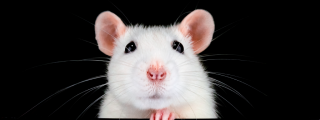Animal testing, also known as animal experimentation, refers to the use of animals in scientific and medical research, product testing, and education. The practice has been a source of controversy for decades, with some arguing that it is necessary for the advancement of science and medicine, while others believe it is unethical and unnecessary. In this essay, we will examine some of the arguments for animal testing.
One of the main arguments in favor of animal testing is that it has contributed significantly to the development of new drugs, treatments, and therapies that have saved countless lives. For example, animal testing has played a crucial role in the development of vaccines for diseases such as polio, measles, and influenza, as well as the development of treatments for cancer, heart disease, and other life-threatening conditions. Without the use of animal models, it would be much more difficult, if not impossible, to study the safety and effectiveness of these treatments and to understand how they work.
Another argument for animal testing is that it allows scientists to study complex biological processes that cannot be easily studied in other ways. For example, it is often difficult to study the effects of a particular drug on the human body, as there are many factors that can influence the results. By using animals as test subjects, scientists can better control for these variables and study the effects of a drug more accurately. Additionally, animal models can help scientists understand the underlying mechanisms of diseases, which can help to identify potential therapeutic targets and develop new treatments.
A third argument for animal testing is that it is strictly regulated and subject to strict guidelines to ensure the welfare of the animals involved. In the United States, for example, the Animal Welfare Act requires that researchers follow specific guidelines for the care and use of animals in research, including provisions for housing, nutrition, and veterinary care. Additionally, many research institutions have their own animal care and use committees that review and approve all animal research proposals to ensure that they are ethically and scientifically sound.
Despite these arguments, animal testing remains a controversial practice, and there are those who argue that it is unnecessary and unethical. Some critics argue that there are alternative methods, such as in vitro or computer modeling, that can be used to study the effects of drugs and diseases without the need for animal testing. Others argue that the suffering and death of animals for the benefit of humans is wrong, regardless of the potential benefits.
In conclusion, animal testing has played a significant role in the development of new drugs and treatments and in the understanding of complex biological processes. While it is strictly regulated and subject to guidelines to ensure the welfare of the animals involved, it remains a controversial practice and is opposed by those who believe that it is unnecessary and unethical. Ultimately, the decision to use animals in research is a complex one that requires a balancing of the potential benefits with ethical considerations.







